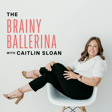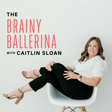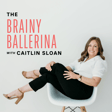
45. Optimizing Hormone Health for Dancers with Dr. Nicky Keay
Join us in today’s episode as we talk with Dr. Nicky Keay, a medical doctor specializing in dance and exercise endocrinology. With a deep passion for both hormone health and the world of dance, Dr. Keay offers expert advice for optimizing athletic performance through personalized approaches to endocrine health.
As a lifelong ballerina, Dr. Keay brings her unique understanding of both medical and dance worlds to her practice, integrating her clinical experience with tangible, actionable steps for active dancers. She is dedicated to providing dancers at all stages of their careers with tailored hormone health strategies to support both performance and overall well-being as well as injury prevention.
Whether you're a professional dancer or someone simply passionate about dance, don't miss out on these valuable insights from Dr. Nicky Keay to optimize your hormone health and improve your dance performance!
Key Topics Covered:
✨ Hormone health for dancers at all stages of life
✨ Red flags indicating hormone imbalances in dancers
✨ Remedies to optimize hormone health for improved performance
✨ Dr. Nicky Keay’s approach to personalized healthcare for dancers
✨ Integrating dance and medical expertise to enhance athletic performance
Connect with Dr. Nicky
Dr Nicky’s Website: www.nickykeayfitness.com
Check out Dr. Nicky on Instagram @drnickykeay & Facebook
Links & Resources
Get 20% off your first order of ALOHA protein bars: https://aloha.com/BRAINYBALLERINA
Visit the Ballet Help Desk website today!: https://ballethelpdesk.com/
Let’s connect!
My WEBSITE: thebrainyballerina.com
INSTAGRAM: instagram.com/thebrainyballerina
Questions/comments? Email me at caitlin@thebrainyballerina.com
This episode was brought to you by the Pivot Ball Change Network.


